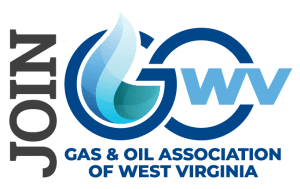THE WALL STREET JOURNAL.
http://www. wsj .ccm/articles/judge-strikes-down-obama-rule-on-fracki ng-on-public-lands-1466600116
U.S.
Judge Strikes Down Obama Rule on Fracking on Public Lands
Interior Department lacked the authority to issue stricter regulation, federal judge in Wyoming finds
By AMY HARDER
Updated June 22, 2016 6:35 p.m. ET
A federal judge in Wyoming has blocked an Interior Department rule setting stricter standards for hydraulic fracturing on public lands, the latest blow to an administration environmental agenda that has drawn wide opposition from Republicans and industry officials.
District Judge Scott Skavdahl issued a ruling late Tuesday invalidating the regulation, saying the Interior Department lacked the authority to issue it because Congress hadn’t given the agency such The same judge last year issued a preliminary injunction blocking the rule until he made a final decision.
Mr. Skavdahl, whom President Barack Obama nominated in 2011, said the issue before his court wasn’t whether fracking “is good or bad for the environment or the citizens of the United States,” but rather whether Congress had given the Interior Department the authority to regulate fracking.
The department’s rule “is in excess of its statutory authority and contrary to law,” Mr. Skavdahl wrote.
The ruling highlights the limits of presidential executive power in an era when Congress is unwilling or unable to agree on legislation addressing the environmental impact of a boom in oil and natural gas production, fueled by fracking, over the last decade.
That bodes trouble for the Democratic Party’s presumptive presidential nominee, Hillary Clinton, who has vowed to continue and double down on Mr. Obama’s environmental agenda irrespective of Congress’ interest in working with her if she wins the election in November.
Analysts say, though, that a determined White House could invoke other parts of current law to regulate fracking, such as following through on a plan by Mr. Obama’s administration to regulate methane emissions from oil and natural gas wells through the Environmental Protection Agency, according to Kevin Book, managing director at ClearView Energy Partners, a nonpartisan research firm whose clients include oil and natural-gas companies.
Meanwhile, the legal system’s rebukes of Mr. Obama’s agenda could make it easier for the GOP’s presumptive nominee, Donald Trump, to undo the raft of environmental regulations implemented over the past eight years.
An Interior Department spokeswoman declined to comment on the substance of the ruling, but she said the agency’s regulation reflects fracking standards already used by many in the oil and natural-gas industry.
“It’s unfortunate that implementation of the rule continues to be delayed, because it prevents regulators from using 21st century standards to ensure that oil and gas operations are conducted safely and responsibly on public and tribal lands,” the spokeswoman said.
The government is expected to appeal the ruling, which would send the case to a federal appeals court and possibly to the Supreme Court.
This week’s ruling is the latest setback for Mr. Obama’s environmental agenda, which he has pursued largely by issuing regulations and bypassing Congress. Administration officials have become frustrated by what they see as Republican inaction in the face of pressing environmental issues, while Republicans accuse the White House of overreaching.
Last October, a federal appeals court blocked an Environmental Protection Agency rule that sought to put more bodies of water and wetlands under federal protection. A final decision on that matter is pending.
The Supreme Court in February temporarily blocked a major regulation limiting carbon emissions from power plants, dealing an early and potentially fatal blow to a rule that is central to Mr. Obama’s efforts to lead global efforts to address climate change.
Congressional Republicans and industry groups pointed to this week’s ruling as evidence that Mr. Obama has been overstepping his authority.
“Only Congress can write laws,” House Speaker Paul Ryan (R., Wis.), said Wednesday in response to the £racking ruling. “Agencies acting without authority from Congress is simply illegal.”
The £racking regulation was issued by the Interior Department’s Bureau of Land Management in March 2015 and had been in the works since 2012. It applies to oil and gas drilling on federal lands, which produce 11% of the natural gas consumed in the U.S. and 5% of the oil, according to government data. State regulations govern £racking on private and state lands.
Much of the drilling is concentrated in Western states, such as Colorado and Wyoming, two of the states challenging the standards. More than 90% of new land-based wells in the U.S. use fracking, the shortened term for hydraulic fracturing.
The judge’s decision doesn’t mean fracking is now unregulated, since the activity still is subject to state rules. The federal regulations applied on top of state rules when the fracking was done on federal lands. Given the judge’s ruling, federal standards that are 30 years old will remain in place for fracking on federal lands, though Interior officials say they weren’t written to address modern extraction technologies.
“My biggest concern about the headlines of this particular case is that it makes people think the industry is getting away with no regulation, when that’s not the case,” said Mark Boling, executive vice president of Southwestern Energy, one of the biggest natural-gas producers in the U.S. “It is regulated by the states.”
Industry trade groups applauded the judge’s ruling.
The “decision demonstrates BLM’s efforts are not needed and that states are-and have for over 60 years been-in the best position to safely regulate hydraulic fracturing,” said Neal Kirby, spokesman for the Independent Petroleum Association of America.
Environmentalists criticized the ruling and expressed hope the full federal appeals court would review the case and uphold the rule.
“While there is no way to ever make fracking safe, the oil and gas industry has repeatedly proven that it needs more standards to keep the public safe from the dangers of fossil fuels, not less,” said Lena Moffitt, director of the Sierra Club’s Beyond Dirty Fuels campaign.
Fracking involves injecting water, sand and chemicals into a well to break up dense rock and release oil and gas.
Energy companies have employed the technology for decades, but increased use of it has helped unlock vast reserves of oil and gas across the U.S. in recent years. Fracking is controversial among environmentalists and some landowners, who worry about water contamination and continued dependence on fossil fuels.
Write to Amy Harder at amy.harder@wsj.com

